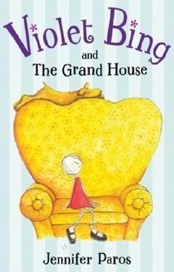The Whole Story: Fear of Being Seen and How to Love Ourselves Better
by Jennifer Paros
“Sometimes the story we’re telling the world isn’t half as endearing as the one that lives inside us.”
I hate this story. It usually makes me feel bad. Here’s what happened.
Years ago I was to pick my husband up at the airport. At the time, I was both concerned about getting to the airport, and also where to park once there. I got on the freeway. The directions were clear, yet three-quarters of the way there, I took the wrong exit. And the reality of the highway, at that point, required I drive away from my destination for quite some time before being able to turn around. When I found my way back, I was relieved to enter the clearly marked roads of the airport. But then I got confused and turned into a garage-like structure not intended for cars, in fact, forbidden for cars. Almost instantly cognizant of the wrongness of my decision, I panicked, but then managed to drive through and out of that space in a highly illegal fashion, and found myself funneled back onto the freeway. After five or so minutes, I was able to loop around and reenter the airport.
Naturally I was more alert and cautious this time. But once more, disorientation set in and I entered the same prohibited area. Heat rose in my face, I made some exclamatory, guttural sounds, and my eyes filled with tears that never fell. There was more looping and re-entering, and despite searing awareness of the mistake I’d made twice before, I did it again.
As I drove back onto the freeway, a most intense despair set in – a complete questioning of self. Why I kept choosing to go into an area marked DO NOT ENTER was beyond me. Next time around, I finally did manage to park and meet my husband, which qualifies as a happy ending – technically. But to me, it was an undeserved, accidental victory. Not only did I not understand why I’d done what I’d done three times previously, most importantly, I couldn’t remember how I’d managed to get it right the final time.
I’ve often wondered why I seemingly lost my mind that day. And I have feared doing so again. Becoming so disoriented and filled with self-doubt that I cannot find my way is not at the top of my to-do list – but it can happen. And living in fear of experiencing myself this way is a direct route to limiting not only where I go, but also what I allow myself to share with the world.
“Tell your story with your whole heart.”
The truth is, there is reason to love this story.
My character (me), though self-doubting and insecure regarding her ability to accomplish the task, ultimately does so. She keeps trying and, though she falls apart to some degree, never completely unravels. She perseveres and, whether she gives herself credit or not, shows up and accomplishes what she’d set out to do: pick up her damn husband at the damn airport. Plus, if viewed from the right angle, it’s funny.
I actually like quirky, wobbly characters – those who have some of their wires hanging out. I find them endearing. I appreciate stories in which those personalities manage to bloom. When I create characters, these are the types about whom I’m most excited – the awkwardly quiet or loud, the clinically negative or upbeat, the scared ones who still try – whether too hard or not hard enough.
I’ve hated the Picking My Husband Up at the Airport story because I didn’t want to be seen through its lens and didn’t yet understand how to tell the whole story. I am not an insecure, distressed, and disoriented person, but I do act like one sometimes. In order to be comfortable being seen (in the world, and through my work), I have to allow my authentic self to be made visible, and also the asymmetries of this unique vehicle for my expression: my personality. And when we write, it’s the same challenge. We have to appreciate the character’s personality stylings, which can be both endearing and problematic, while simultaneously knowing who they are in their integrity.
An unevenly grown personality is par for the course, but so are the potentially funny, heartbreaking, charming, and textured aspects born of that unevenness.
We can adore that bumpiness and our core selves – always at the ready to break through the personality’s narrative. In this way we’ll share fully, because we’ve managed to tell the whole story – with love.
Jennifer Paros is a writer, illustrator, and author of Violet Bing and the Grand House (Viking, 2007). She lives in Seattle. Please visit her website.

